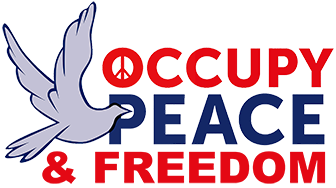frequently asked questions
What’s going on?
We all want to connect. And social media can be a powerful tool to help us get past walls and share our stories, grow our networks, and stand up for one another. At the same time, the need for social media companies to ensure their platforms are safe and accessible has never been greater, and right now they are implementing guardrails so we can all safely connect across space and difference.
But some politicians and governments are trying to turn these necessary guardrails into walls that keep us apart, generating fear and keeping us divided so they can avoid being held accountable for their actions.
What’s happening at Facebook?
Right now, Facebook is reaching out to stakeholders to ask if critical conversations that use the term “Zionist” fall within the rubric of hate speech as per Facebook’s Community Standards. Basically, Facebook is assessing if “Zionist” is being used as a proxy for “Jewish people or Israelis” in attacks on its platform.
This move is part of a concerning pattern of the Israeli government and its supporters pressuring Facebook and other social media platforms to expand their hate speech policies to include speech critical of Israel and Zionism.
Facebook says it will make a decision as soon as the end of February 2021.
Why is this happening?
The Israeli government and its supporters falsely claim that equating “Zionist” with “Jew” or “Jewish” will help fight antisemitism. In reality, they hope that that by mischaracterizing critical use of the term “Zionists” as anti-Jewish, they can avoid accountability for its policies and actions that violate Palestinian human rights.
Attempts to stifle conversations about Zionist political ideology and Zionist policies carried out by state actors — both of which have real implications for Palestinian and Israeli people, as well as Jewish and Palestinian people around the world — are part of an emerging pattern of political censorship by the Israeli government and some of its supporters.
The most prominent example of these efforts to shield the Israeli government from accountability is the current campaign to impose the controversial IHRA working definition of antisemitism on campuses and civil society, and to codify it in government legislation.
What would the result be?
If Facebook does move to restrict use of the word Zionist, this would block important conversationson the world’s largest social media platform, harm Facebook users attempting to connect across space and difference, and deprive Palestinians of a critical venuefor expressing their political viewpoints to the world.
Social media is increasingly a space for people to share and document their experiences with state violence and repression, upending previous power imbalances, government censorship and state-controlled media. This has been a gamechanger for global social movements for justice, including the growing movement in support of Palestinian human rights.
Palestinians need to be able to talk about Zionism and Zionists in order to share their family stories and daily lived experience with the world. That language is essential to clearly distinguishing between Judaism and Jewish people, on the one hand, and the State actors responsible for human rights violations against Palestinians, on the other.


Recent Comments